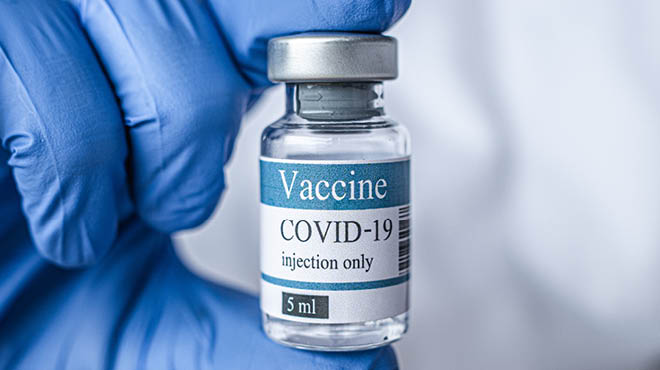Time to waive patents on Covid-19 vaccines
By Adalla Allan, June 2, 2021Presently, a big debate rages in the global front about whether or not it would be prudent for giant tech firms and pharmaceuticals to share their Intellectual Property rights on their jabs for the good of humankind.
Allan Adalla @adalla_allan
The world has been battling the Covid-19 pandemic for more than a year now.
Scientists and tech giant companies have been working tirelessly to come up with vaccines for this virulent respiratory disease to make the world a safe place to live.
We now have several vaccines approved by one or more global medicine regulatory bodies.
However, there has been a long debate whether the Intellectual Property (IP) of these vaccines should be lifted.
With the presence of IP rights, many people argue that hundreds of millions of residents in wealthy nations will be vaccinated before billions of people in developing countries have similar access.
A global advocacy campaign is currently seeking to exempt Covid-19 vaccines from IP protections, claiming that this action would mobilise additional manufacturers and help address vaccine access variations.
Chris Kahuria, a tech expert and an entrepreneurship and financial management lead at Silikon Consulting Group Ltd, says that if IP is not lifted, developing nations will continue to wait on the queue for the big pharmaceuticals to make vaccines for them.
He adds the costs may be too high for these nations whose economies have been shattered by the after shocks of Covid-19.
“If we lift IP on the vaccines, generic manufacturers will produce the vaccines in large quantities in these countries without the fear of being sued for violations of IP rights.
This will of course avail more affordable doses to the developing nations and lessen the waiting queue,” he says.
Unauthorised copying
IP refers to creations of the mind, such as inventions, which are protected by patents, copyrights and trademarks.
Such protection is done to prevent unauthorised copying, thereby allowing the innovator to profit from their innovation.
Patents confer a short-term monopoly to the innovator to enable them to recover their cost of development and this is an incentive to innovation.
Kahuria argues that if the waiving of IP on Covid-19 vaccines becomes an acceptable position by countries and all stakeholders, it would be a good move that would not only help in achieving vaccine equity, but also remove bureaucracies in dealing with a pandemic that has ravaged the entire world and becomes a threat to life and livelihoods.
“Whenever there is a crisis of such global proportions, all involved parties must make the well-being of all people in the world their utmost priority.
The vaccines that are circulating globally are made as a result of innovation and private investment by leading pharmaceuticals in the developed nations.
Some of these companies have argued that there are already existing bilateral agreements between them and leading generic manufacturers, which are sufficient to help in accelerating access to the vaccines and the lifting of IP will not discourage them from future investments into a quick solution to a future crisis,” he says.
He adds that if the world is staring at a health crisis, just like any other crisis such as war, drought, flooding and so on, the need for all to set aside their gains and make ultimate sacrifices becomes a moral responsibility.
“Profits can be forfeited and all measures geared towards global cooperation to save the world.
The developing nations are at this time looking up to their bigger brothers to help them deal with a crisis,” he asserts.
Intellectual Property lawyer Joan Mukoya explains the reasons protection of the IP is essential.
She points out that IP protection plays the role in encouraging, focusing and monetising innovation from enterprises and individuals.
“A robust IP protection through registered patents encourages enterprises to invest in and focus on research and development to develop novel solutions to common problems facing human beings, as well as solutions to improve human living.
“For instance, the Covid-19 vaccines are produced using patented medicinal formulas; and through licensing of patents to multiple pharmaceutical manufacturers, more people can access vaccines for immunisation.
Without the licensing royalties earned from patents and the attendant licensing to sub-licensees to manufacture these vaccines, fewer people would have access to affordable relief-giving and life-saving medication.
Similarly, copyrighted and patented software is used by everybody in applications for use in sectors as diverse as mobile banking, auditing, gaming and farming,” says Mukoya.
Harmful counterfeits
Further, she confides that a strong IP protection system is beneficial to protect the health and safety of citizens by protecting them from harmful counterfeit and pirated goods.
“The regulatory agencies such as the Anti-Counterfeit Authority and Kenya Bureau of Standards play an intersecting role in IP protection by carrying out their respective functions in fighting the trade in counterfeits and ensuring quality assurance in the production of goods.
Counterfeit goods (which are made in breach of IP laws such as trademark and patent laws) are often inferior goods made without discernible quality assurance standards and are often harmful to consumers.
Therefore, IP protection in Kenya is a consumer protection issue of immense importance to each Kenyan,” she says in conclusion.
